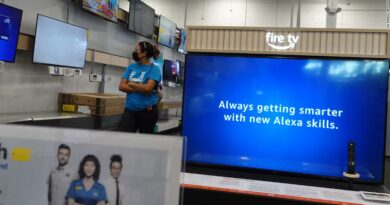United Auto Workers Usher In New Era of Leadership
The United Auto Workers union has opened a new chapter in its storied history, and it may end up looking a lot like its combative past.
Over the weekend, the 88-year-old union confirmed that an outsider, Shawn Fain, had prevailed in a hotly contested election for president, ousting the incumbent. An electrician whose father and grandfathers were also U.A.W. members, Mr. Fain has promised to take a tough negotiating line for increased wages in contract talks this year with the three Detroit automakers.
“It is a new day for the U.A.W.,” Mr. Fain said on Monday at the start of a three-day convention, where hundreds of delegates will hammer out priorities and strategies for the contract talks that will formally open this summer.
“We are here to come together for the war against our one and only true enemy — the multibillion-dollar corporations and employers who refuse to give our members their fair share,” Mr. Fain said.
He opened his address by shouting, “Let’s get ready to rumble!” — drawing out the final word in the style of the famed boxing ring announcer Michael Buffer.
Labor Organizing and Union Drives
Mr. Fain, 54, won by a razor-thin margin after prolonged vote-counting and more than two weeks of wrangling over some 1,600 challenged ballots. With the count nearly complete, Mr. Fain had 69,459 votes — 483 more than the incumbent, Ray Curry. Mr. Fain was declared the victor, and Mr. Curry conceded, when the margin exceeded the number of ballots still under challenge.
The election was the first in the U.A.W.’s history in which the president and the union’s other senior executives were chosen through direct balloting of members. In the past, the leadership was chosen by delegates, a system in which favors and favoritism played a heavy role.
The democratic election had been mandated by a court-appointed monitor who has been overseeing the U.A.W.’s efforts to carry out anti-corruption reforms. The monitor was appointed as part of a 2021 settlement of a federal investigation that found that top union officials had embezzled more than $1.5 million from membership dues and $3.5 million from training centers, and had spent some of the money on expensive cigars, wines, liquor, golf clubs, apparel and luxury travel. More than a dozen U.A.W. officials, including two former presidents, pleaded guilty.
Mr. Curry was not a target of the corruption investigation but many members saw him as linked to the establishment that had been running the union for years.
Mr. Fain takes office along with several other outsiders running on his slate who were elected to senior posts by convincing margins. They won support from members who were angered over the corruption scandals and wanted an executive team that would push harder for higher wages and other demands in contract talks with General Motors, Ford Motor and Stellantis, the automaker formed through the merger of Fiat Chrysler and Peugeot S.A.
Decades ago, the U.A.W. had more than 1.5 million members and the power to influence presidential elections and demand steady increases in wages and benefits. When the manufacturers resisted, it called strikes that shut down a large part of the industry. Over the years, the U.A.W.’s gains helped lift wages and living standards for a broad swath of manufacturing workers across the United States.
But its influence declined as the Detroit automakers struggled. When G.M. and Chrysler were reorganized in bankruptcy court in 2009, the union made concessions on wages and benefits that it has not won back, and it has had to weather the closing of dozens of plants. It now has about 400,000 members.
The contract talks come after years in which G.M., Ford and Stellantis have been reporting record results and have paid significant sums to workers in profit-sharing bonuses. In 2022, for example, G.M. made a profit of $9.9 billion and paid a bonus of $12,750 to each of its U.A.W. workers.
Members want Mr. Fain to fight for wage increases to offset inflation, an end to a two-tier wage system that pays newer workers significantly less than veterans and assurances that new plants will be built in the United States rather than abroad.
At the convention, the rank and file appeared to back Mr. Fain, despite his narrow margin of victory.
“I’m ready to strike,” said Romaine McKinney III, an electrician at a Stellantis stamping plant in Warren, Mich. “We have to show these companies that we are ready to walk out.”
Jamonty Washington, a worker at a Detroit plant where Stellantis makes Jeeps, said he started his job 12 years ago making just under $16 an hour — working next to a colleague making $31 an hour. He has worked his way up to $30 an hour, he said, but thinks the union has to fight to eliminate such differences in pay.
“Equal pay for equal work,” he said. “It’s time for this union to get back to being militant — not asking but demanding.”
Source: Read Full Article



